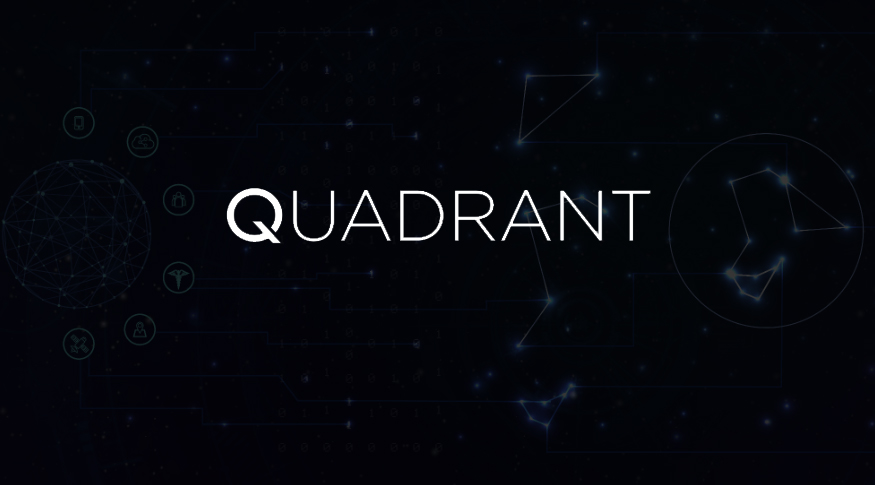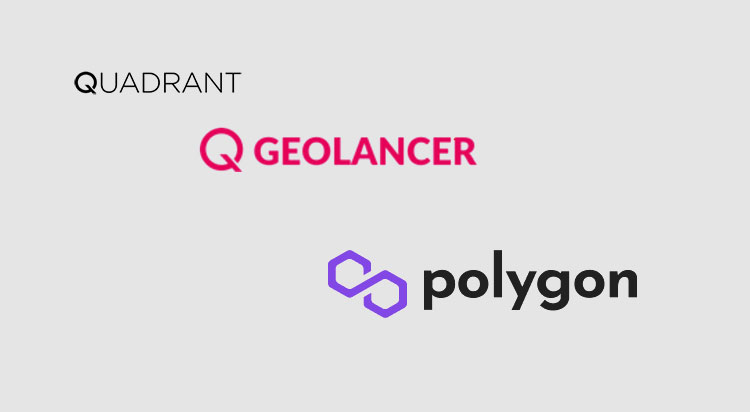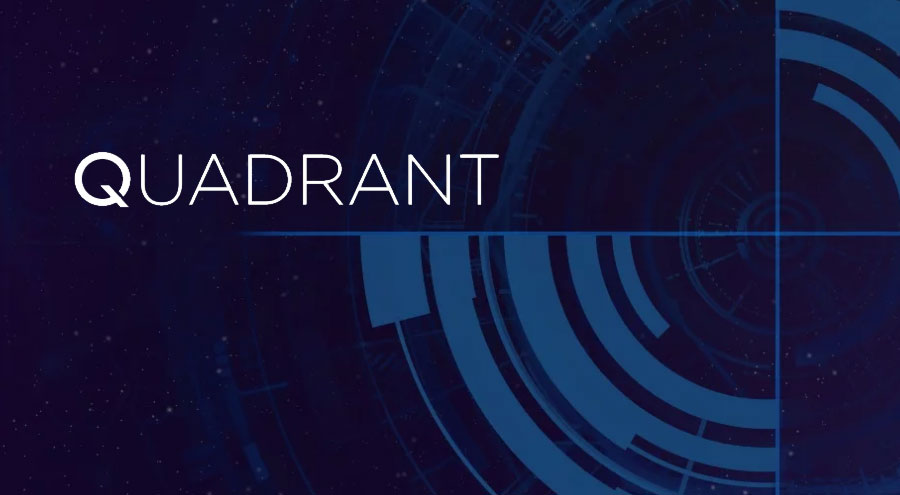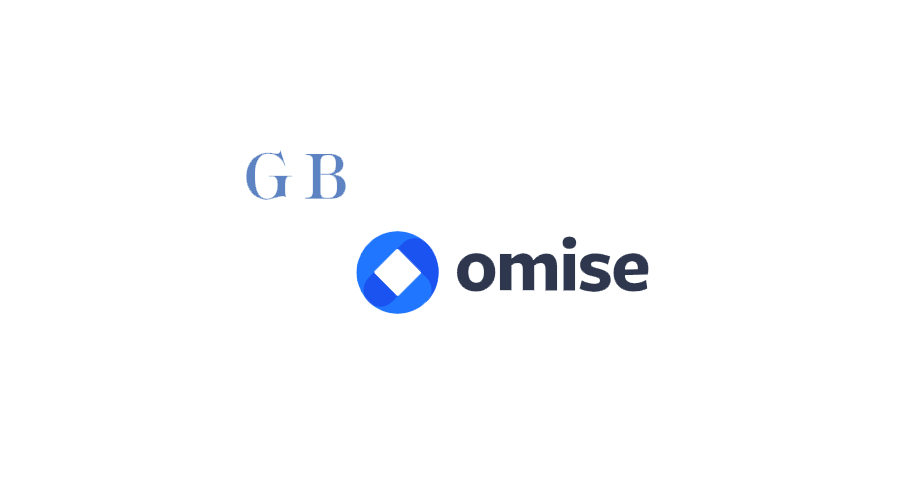Quadrant Protocol, a blockchain-based protocol that maps and authenticates data announced today the launch of its mainnet, opening up its data authentication technology to public and private organizations. Quadrant Protocol drives Quadrant.io and will be used by organizations – from major FMCG, Governments and financial firms to start-ups and SMEs – to authenticate the data they purchase and use, helping them make better, more accurate business decisions. Quadrant Protocol uses blockchain to stamp data with a unique signature, thereby ensuring that any changes, duplication or falsification cannot be done without the user’s knowledge, and data can be traced right back to its source.
The technology is set to bring authenticity and trust to a notoriously murky Data Economy, where data sources are routinely hidden, and fraud is common, resulting in firms often spending millions of dollars on data without any idea where it came from or how accurate it is.
“The global Data Economy is made up of layer upon layer of middlemen who buy and sell data which eventually makes its way to the end user. With many of these middlemen hiding their source, it is currently impossible to know where that data came from, whether it was falsified, exaggerated or duplicated. This complete lack of transparency has real-world consequences; companies will make multi-million-dollar decisions, Artificial Intelligence (AI) algorithms will come to certain judgments, and governments will decide major public policy based on data that could potentially be wrong. Quadrant Protocol will help put an end to this by establishing a method by which users of data know exactly where that data comes from, who produced it and whether it has been changed. This will result in more accountability, and more trust with significant knock-on benefits.”
Quadrant Protocol’s data authentication technology leverages blockchain to stamp data with a unique signature. This guarantees that, from the time of stamping, any change in the data will result in a misalignment to the unique signature, signaling to the buyer that the data has been altered. Any data that is intentionally or unintentionally manipulated is tracked and traced back to its source – creating accountability and filtering out bad actors – and companies can now make important decisions based on data that they know is true to the moment it was created and stamped.
While stamping data will result in more authenticity and trust, its benefits go beyond this. Within its mainnet, Quadrant Protocol will discover, verify and map disparate data sources, and then distribute and combine them in meaningful and useful ways. This mapping of data, combined with the inherent trust established, will spur innovation and enable the creation of new data products. It will also allow users to purchase accurate data from many more sources, bypassing current data producing giants.
Established in 2017, Quadrant Protocol underwent their Initial Coin Offering (ICO) in July 2018, raising USD $15.5 million in a private token sale from more than 30 backers, including Malaysia’s Coin Capital, Hong Kong’s Zeroth.AI, and Switzerland’s Block0. The Quadrant.io platform is being built in conjunction with the Infocomm Media Development Authority of Singapore (IMDA) to enable AI/microservices on top of the platform, which are set to be rolled out in 2019.
“This is only the start for Quadrant Protocol. Following our successful ICO earlier this year, we have built a great team and have established partnerships with major private and public organizations” continues Mike, adding “We plan on further expanding our team of engineers, data scientists, and developers. We will also be seeking partnerships with organizations who we can work with to spur innovation and enable entrepreneurs and companies to create new products using accurate data.”
During the testing phase, Quadrant Protocol has been used extensively by producers and users of location data. Anonymous location data produced every day by people purchasing coffees, using ride-hailing apps and taking public transport is aggregated by the Quadrant Protocol, stamped with a unique signature, and made available to end users. This ensures the end-to-end authenticity of the data (location data can easily be corrupted, changed or duplicated), and importantly allows disparate sources of location data to be mapped resulting in more and better-quality data.
Over 2.5 quintillion bytes of data created each day at our current pace and 90% of the data in the world was generated in the past two years. Much of this data is produced, stored and sold on to organizations from F&B firms to insurance companies, governments to global FMCG firms who rely on the data, and the analysis that comes from it, to make business or policy decisions. Furthermore, with the growing use and sophistication of Artificial Intelligence (AI) technology – which relies on quality data to make end decisions – the need for accurate data will only grow.
Quadrant Protocol forms part of Quadrant.io, a company that enables organizations to drive innovation and opportunity by providing solutions to their data challenges through actionable, authentic data. Quadrant.io works with businesses and governments to pinpoint the data problems they experience and provides solutions through its data sourcing platform and its data authentication technology.



















